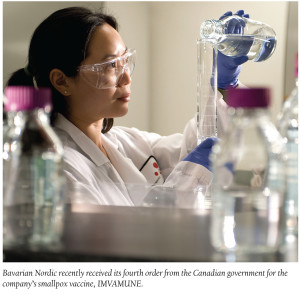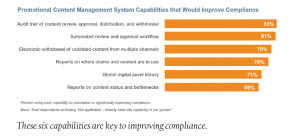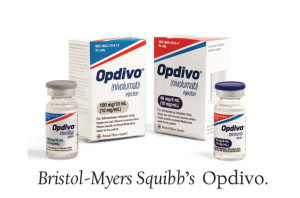Therapeutic Talk: Canada Stockpiles Smallpox Vaccine

The Public Health Agency of Canada ordered 143,000 doses of smallpox vaccine Imvamune from Bavarian Nordic, an order that reaches $6.4 million. Imvamune is a non-replicating vaccine, which is why Canada chose this drug to reserve for the protection of its citizens. Unlike traditional replicating vaccines, Imvamune is claimed to be safe for all to use, including those with HIV or skin disorders. This will mark the fourth order of smallpox vaccines that the Canadian government has placed under a seven year contract with the drug maker, and will most likely not be their last.
President and CEO of Bavarian Nordic, Paul Chaplin says, “The international expansion of sales of our smallpox vaccine remains a key factor in the success of the Imvamune franchise. As ours is the only approved smallpox vaccine in both Canada and the European Union, we continue to view Imvamune as a major asset to the company.”
Discoveries/Innovations: Can the “Love Hormone” Help Children with Autism?
The improvement of social interaction in children between ages three and eight with autism is the subject of a study published by Molecular Psychiatry. In a randomized clinical crossover trial conducted in Australia, 31 children were treated with a nasal spray containing synthetic oxytocin (organically known as the “love hormone”) or with a placebo spray for five weeks. Neither the parents nor participants knew if they had received the oxytocin-infused spray or not. Both parents and outside observers did notice that the children were more comfortable and had improved social responsiveness. These findings were moderate and the chemical did not prove effective for any other behavioral traits. According to WebMD, experts say larger U.S. trials are in the planning stages.
Med Device: Injectable Alternatives Make Compliance Easier
Huge advancements have been made in peptide drug delivery thanks to PharmFilm technology created by MonoSol Rx and manufactured by its subsidiary, Reckitt Benckiser. Peptides used as chronic therapy drugs, such as exenatide or ocreotide, are generally injectable. PharmFilm is a non-injectable alternative that is much more easily used as an everyday drug for the average patient, and therefore helps patients achieve compliance. The company currently offers two oral film products, Suboxone for opioid dependence treatment and Zuplenz for nausea caused by chemotherapy.
Dr. Nozer Mehta, VP of Biologics at MonoSol Rx, presented the findings at The Boulder Peptide Symposium in CO and the Partnerships in Drug Delivery Conference in Boston, saying “MonoSol Rx’s PharmFilm already boasts a number of technical advantages as a drug delivery technology. As we actively expand our development pathway to include peptide drugs to our pipeline, the findings from the early preclinical studies support the successful application of this technology for oral peptide delivery.”
TeleMed Texts: Veeva Reveals a Compliance Chasm
 Veeva has revealed data that shows a notable gap in the life science industry’s ability to efficiently manage promotional content from creation and review to expiration and withdrawal. The company conducted a global survey, the Veeva 2015 Life Sciences Promotional Content Management Survey, to assess how the industry has progressed toward automated, end-to-end methods rather than paper and stand-alone promotional content management processes. More than half of the survey participants have adopted automated processes, yet there are still some missing capabilities that are important to compliance.
Veeva has revealed data that shows a notable gap in the life science industry’s ability to efficiently manage promotional content from creation and review to expiration and withdrawal. The company conducted a global survey, the Veeva 2015 Life Sciences Promotional Content Management Survey, to assess how the industry has progressed toward automated, end-to-end methods rather than paper and stand-alone promotional content management processes. More than half of the survey participants have adopted automated processes, yet there are still some missing capabilities that are important to compliance.
- 77% are unable to withdraw expired or outdated content from multiple channels.
- 49% do not have primary systems that provide an end-to-end audit trail to manage promotional content throughout its lifecycle.
- 81% do not know where claims and content are in use.
- 88% still rely on multiple systems to manage promotional content, which means there are inefficient points in their promotional material management processes.
- On average, four systems are in use and 31% of respondents have between five and 20 systems.
The survey found that 88% of respondents who use end-to-end systems are satisfied with their primary systems as opposed to the 62% of respondents who are satisfied with their multichannel systems. This news is particularly important considering 100% of those who use end-to-end systems are satisfied and adhere to compliance requirements fully.
Sales Sector: Bristol-Myers Scores with hep C Sales
 As it blows past analysts’ estimates and competes for first place in its field, Bristol-Myers Squibb is betting on a big profit from their hep C drug, Opdivo. The drug was estimated to bring in $238 million in its second quarter, but instead reached $305 million and shows no signs of slowing in the third quarter. BMS, according to Bloomberg, expects total sales to reach $4.07 billion.
As it blows past analysts’ estimates and competes for first place in its field, Bristol-Myers Squibb is betting on a big profit from their hep C drug, Opdivo. The drug was estimated to bring in $238 million in its second quarter, but instead reached $305 million and shows no signs of slowing in the third quarter. BMS, according to Bloomberg, expects total sales to reach $4.07 billion.
FDA Update
Drug Approvals
The first medicine developed in more than 50 years for treatment of high blood potassium levels, Relypsa’s Veltessa, received approval. Veltessa is an oral medication that binds potassium to lower blood potassium levels and keeps them in a target range for up to a year.
The first treatment for perinatal, infantile, and juvenile-onset hypophosphatasia (HPP), a metabolic disease, Strensiq, made by Alexion, received approval. The drug is an injectable administered three to six times per week, and works by replacing enzymes that form essential bone minerals. About 97% of patients treated with Strensiq lived past the one-year marker as opposed to the 42% who did not in a natural history control group, due to improved bone growth.
Merrimack Pharmaceutical’s Onivyde received FDA approval for the treatment of metastatic pancreatic cancer. The injectable is proven to boost the survival rate for those with progressive pancreatic cancer.
New Indication
The FDA expanded the approved use of Bristol-Myers Squibb’s Yervoy (ipilimumab) to include use as adjuvant therapy for patients with stage III melanoma, to lower the risk that the melanoma will return following surgery.
Med Device Approvals
EarLens Corporation received FDA approval for a new hearing aid that is the first to use a laser to direct vibrations to the eardrum. Called the EarLens Contact Hearing Device, it is reported to offer up to a 33% improvement in individuals with mild hearing loss.





